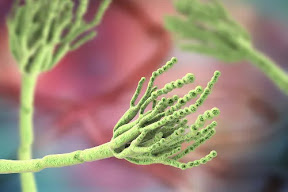Discuss Growth Promoting Bacteria and Fungus in a Details
Traditional losses in farmyards or agricultural grounds were due to the overwhelming presence of harmful bacteria and fungi. They not only destroy crop yields but also take essential nutrients from the soil to make plants or crops in circumstances of deprivation.
Therefore, to eliminate such problems, agricultural scientists, biologists, and experts focus on growth-promoting bacteria and fungi in the agricultural sector.
These beneficial microorganisms play a significant role in boosting plant growth, nutrient uptake, and overall plant health. Moreover, they are the foundation stone behind the establishment of symbiotic or mutualistic relationships with plants.
Overall, these properties of essential microorganisms help in accessing nutrients, improving stress tolerance, and boosting root development.
Let us delve into the role of growth-promoting bacteria like Bacillus methylotrophicus and fungi such as Trichoderma harzianum in more detail.
Growth Promoting Bacteria
Rhizobium spp.:
Rhizobium is known for the formation of symbiotic relationships between many leguminous plants, including soybeans, peas, and clover.
These bacteria fix atmospheric nitrogen into its simplest form so that it can be utilized by plants, enriching them.
Azospirillum spp.
These bacteria are known for fixing atmospheric nitrogen and stimulating plant-promoting hormones like auxins, cytokinins, and gibberellins.
They colonize the roots of various crops, enhancing elongation and nutrient uptake.
Mycorrhizal Fungi
While not bacteria, mycorrhizal fungi deserve mention due to their important role in plant growth promotion.
Mycorrhizae form symbiotic associations with plant roots, elongating their reach to the soil in order to access water and nutrients.
Pseudomonas spp.
Pseudomonas generates siderophores that chelate iron, making it more available to plants. They also produce antibiotics and enzymes that protect plants from pathogens and enhance nutrient uptake.
Growth-Promoting Fungi
Trichoderma spp.
Trichoderma species are demanded for biocontrol agents that also exhibit growth-promoting properties. They produce enzymes that break down organic matter, releasing nutrients for plants.
Beauveria Bassiana
While primarily recognized as an insect pathogen, B. bassiana can also enhance plant growth. It forms endophytic associations with plants, promoting nutrient uptake and growth under stress conditions.
Benefits of Growth-Promoting Microorganisms
Here is the list of benefits of growth-promoting microorganisms, such as
● Acquisition of essential nutrients
● Stimulation of plant growth hormones
● As biocontrol agents.
● Improvement in a stress tolerance
● Enhancement of soil structure.
- Reduction in chemical dependency.




Comments
Post a Comment